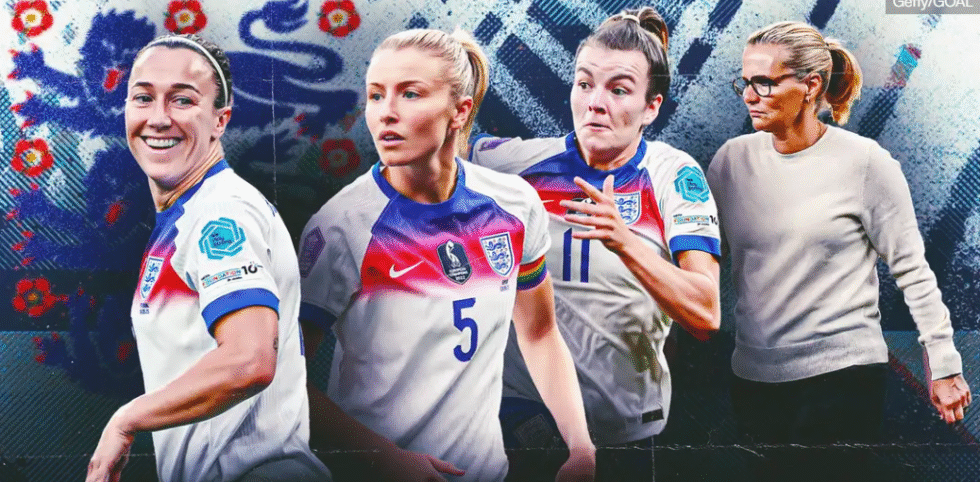
As a self-proclaimed old American coot who fell in love with soccer during the 1994 World Cup, I’ve watched this beautiful game grow from a niche sport to a cultural phenomenon here in the States. But nothing prepared me for the online hatred directed at England’s women after their recent Euro competition victory.
The comments sections were brutal. “Overpaid amateurs,” they sneered. “Can’t even handle penalty pressure.” This from fans who worship male players who’ve choked in similar moments. When Christian Pulisic missed that crucial penalty against Belgium, nobody questioned his right to play professionally. Yet when England’s women face the same pressure, suddenly everyone’s an expert.
The Money Talk Doesn’t Add Up
Look, I understand economics. Men’s soccer generates massive revenue because it’s had decades of investment and global marketing. But the wage argument falls apart under scrutiny.
England’s women earn around $2,400 per international appearance. That’s less than MLS bench players make in a week. The gap isn’t just significant—it’s absurd.
Here’s what critics miss: revenue follows investment, not the other way around. Our women’s national team proved this. When U.S. Soccer finally invested properly in the women’s program, we dominated globally. Four World Cup titles and massive viewership followed the investment, not the reverse.
European women’s soccer gets minimal TV coverage, terrible scheduling, and marketing budgets that wouldn’t fund a decent Super Bowl commercial. Then people complain about attendance and revenue. It’s designed to fail.
The Quality Question
The “standard of play” debate irritates me most. Yes, men are faster and stronger—biology isn’t controversial. But soccer IQ, tactical awareness, and technical skill? Women’s soccer often surpasses the men’s game.
I’ve attended both USWNT and USMNT matches. The women’s game flows differently. Less diving, fewer theatrics, more actual soccer. Players get fouled and bounce back up instead of rolling around like they’ve been shot.
Different doesn’t mean inferior. The WNBA doesn’t play like the NBA, but both are compelling basketball. Women’s soccer offers its own rhythm that many fans genuinely prefer once they give it a chance.
Social Media Toxicity
The online abuse these players endure goes beyond anything male soccer players face here. Death threats over missed penalties. Constant questioning of their right to exist professionally.
Male players get criticized for poor performances, but rarely for their fundamental right to play soccer for money. The hatred feels personal in ways that criticism of male players never reaches.
I suspect this stems from discomfort with changing times. Soccer was “ours” for so long that sharing it feels threatening to some men’s identity.
Learning from American Success
Our women’s program offers a template for global growth. Title IX forced universities to invest in women’s sports, creating the infrastructure that produced world champions. Equal investment yielded superior results.
The USWNT also mastered marketing individual personalities. Mia Hamm, Alex Morgan, Megan Rapinoe—these players built brands independent of team success. Fans connected with them as athletes and personalities, not just as “women playing men’s sport.”
Television coverage treats USWNT matches as serious sporting events, not feel-good novelties. When broadcasters focus on athletic achievement rather than gender storylines, audiences respond accordingly.
What Soccer Needs to Change
Prime-time television slots would transform everything overnight. Nobody watches sports at inconvenient times, regardless of quality. European leagues schedule women’s matches during men’s international breaks when stadiums sit empty anyway.
Youth investment is crucial. Girls need visible role models and professional pathways. England’s Euro success will inspire a generation, but only if infrastructure exists to support that enthusiasm.
Media coverage requires massive improvement. Stop emphasizing how “brave” women are for playing soccer. Cover them like athletes, not curiosities performing against expectations.
Personal Stakes
My granddaughter plays travel soccer now. She talks about becoming the next Sophia Smith with the same excitement boys used to reserve for wanting to be Pelé. That shift represents progress worth defending.
I never expected to become a passionate advocate for women’s soccer at my age. But watching talented athletes endure abuse for pursuing excellence changed my perspective. These players deserve better from fans who claim to love the game.
The Lionesses won more than a tournament—they earned legitimacy. Soccer improves when more people can excel at it. That’s not politics—that’s obvious.
American soccer succeeded because we invested in women’s excellence rather than making excuses for inequality. The rest of the world should follow our lead instead of clinging to outdated attitudes that hold the sport back.
The beautiful game becomes more beautiful when everyone can play it at the highest level.
